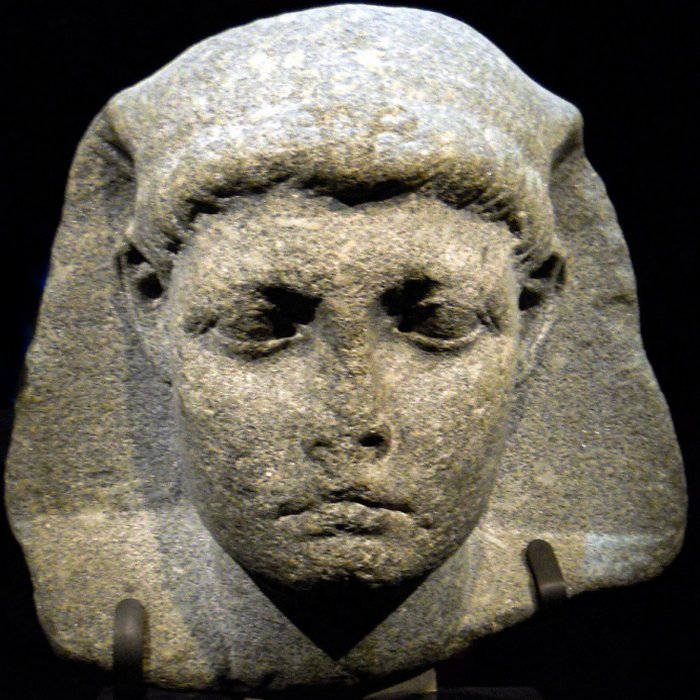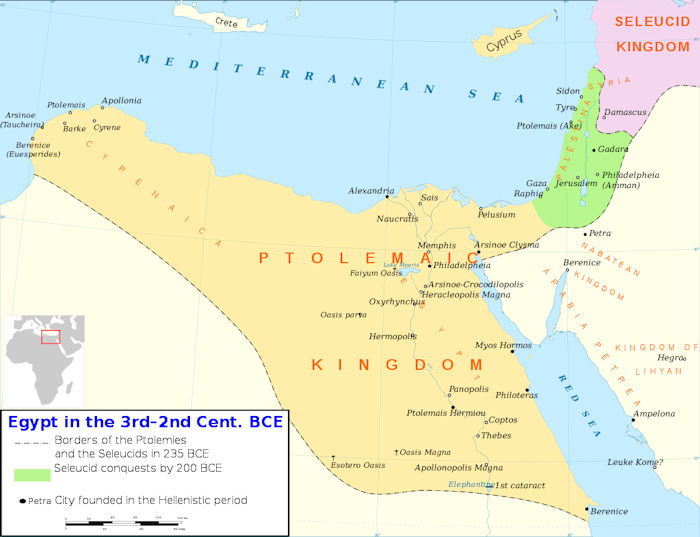‘Little Caesar’: Forgotten ‘King Of Kings’ Who Died Very Young
A. Sutherland - AncientPages.com - Caesarion was murdered on August 23, 30 B.C., only 17 years old. He was the last King of the Egyptian Ptolemies, most probably the son of Julius Caesar, and his mother was Cleopatra VII.
Caesarion was born in 47 B.C. in Egypt.
It is not certain, but commonly thought that the Roman leader was actually his father. If he really was a child of Caesar, it was also his only son.
No documentation has been discovered about his death; because of his young age, it is believed that he died of strangulation. Credit: Sdwelch1031 - CC0
Caesarion was said to have inherited Caesar's appearance and manner, and he was even allowed to use his name, but Caesar never officially acknowledged the boy.
In 46 - 44 B.C., he stayed with his mother in Rome. After the murder of Caesar by conspirators in 44 BC, Cleopatra and Caesarion returned to Egypt.
The three-year boy Ptolemy XV was proclaimed "King of Kings" and reigned jointly with his mother from September 2, 44 B.C.
He wasn't aware of the power struggles around him and his mother. Some powerful men wanted even more power; among them was Mark Antony, his mother's lover, and a Roman General and Julius Caesar's second cousin. The next one was the aristocratic Marcus Lepidus, who was earlier Caesar's, a close ally.
Ptolemaic Egypt was a culturally and intellectually lively place. Amphipolis - CC BY-SA 4.0
Then, there was Octavian; his claim to power proceeded from his status as Caesar's adoptive son. He did not like that Mark Antony gave Caesarion numerous titles (including 'King of kings') and possessions in the east when Antony officially announced that Caesarion was a true son of Caesar.
Octavian had a lot of support because Caesar's adopted son was considered his rightful heir. However, the whole situation began to worsen more and more because his political position was threatened.
The conflict between Octavian and Antony resulted in the Battle of Actium. On the morning of September 2, 31 B.C. the fleets of Roman Mark Antony and Cleopatra, queen of Egypt, met the fleet of Octavian leader just outside the Gulf of Actium in Greece.
A relief of Cleopatra VII and Caesarion at the temple of Dendera, Egypt. Credit: Rowan - Public Domain
Octavian won the battle.
Following Antony's disastrous defeat at Actium in 31 during the war against his fellow triumvir Octavian, Cleopatra sent Caesarion to Berenice, a seaport on the Red Sea coast of Upper Egypt.
Anthony escaped to Egypt, but as Octavian's legions closed in the following year, so Antony committed suicide by stabbing himself with a sword. He died in Cleopatra's arms. Soon after, Cleopatra's arms would be cold with death when she committed suicide by-asp on August 12, 30 B.C.
On Octavian's way to absolute power, one of the last obstacles is Caesarion.
Octavian lured the young King to Alexandria and ordered the death of his step-brother, Caesarion, and so it happened. Octavian chooses authoritarianism over democracy while Caesarion ('Little Caesar') is already dead, buried, and not particularly often mentioned in historical records – simply – forgotten.
Updated on August 27. 2023
Written by – A. Sutherland AncientPages.com Staff Writer
Copyright © AncientPages.com All rights reserved. This material may not be published, broadcast, rewritten or redistributed in whole or part without the express written permission of AncientPages.com
Expand for referencesMore From Ancient Pages
-
 Ancient Site Tres Zapotes Offers Evidence The Olmecs Practiced Shared Governance
Archaeology | May 30, 2017
Ancient Site Tres Zapotes Offers Evidence The Olmecs Practiced Shared Governance
Archaeology | May 30, 2017 -
 Trolls – Fascinating Mythical Creatures Of Scandinavia
Featured Stories | Jun 13, 2022
Trolls – Fascinating Mythical Creatures Of Scandinavia
Featured Stories | Jun 13, 2022 -
 Rose Cross – Powerful Symbol That Existed Long Before Christianity
Ancient Symbols | Dec 3, 2017
Rose Cross – Powerful Symbol That Existed Long Before Christianity
Ancient Symbols | Dec 3, 2017 -
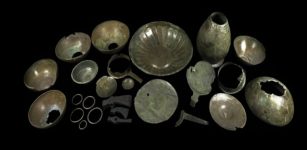 Knaresborough Hoard Reveals Its Secrets – Unusual Roman Discovery In The British Isles
Archaeology | Jan 12, 2024
Knaresborough Hoard Reveals Its Secrets – Unusual Roman Discovery In The British Isles
Archaeology | Jan 12, 2024 -
 On This Day In History: 3,106-Carat Diamond Found – On Jan 25, 1905
News | Jan 25, 2017
On This Day In History: 3,106-Carat Diamond Found – On Jan 25, 1905
News | Jan 25, 2017 -
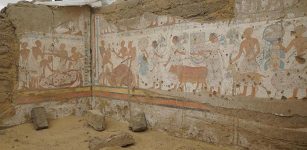 Tomb Of Pharaoh Ramesses II Treasurer Ptah-M-Wia Discovered In Saqqara
Archaeology | Nov 4, 2021
Tomb Of Pharaoh Ramesses II Treasurer Ptah-M-Wia Discovered In Saqqara
Archaeology | Nov 4, 2021 -
 Disgusting Vandalism And Looting Of Viking Graves In Norway
News | Nov 6, 2020
Disgusting Vandalism And Looting Of Viking Graves In Norway
News | Nov 6, 2020 -
 Ancient DNA Helps Reveal Social Changes In Africa 50,000 Years Ago That Shaped The Human Story
DNA | Jun 7, 2022
Ancient DNA Helps Reveal Social Changes In Africa 50,000 Years Ago That Shaped The Human Story
DNA | Jun 7, 2022 -
 Surprising Discovery – Replica In The Field Museum Is A 3,000-Year-Old Sword
Artifacts | Jan 18, 2023
Surprising Discovery – Replica In The Field Museum Is A 3,000-Year-Old Sword
Artifacts | Jan 18, 2023 -
 Opium Residue Discovered In 3,500-Year-Old Pottery Offers Evidence The Drug Was Used In Ancient Burial Rituals
Archaeology | Sep 20, 2022
Opium Residue Discovered In 3,500-Year-Old Pottery Offers Evidence The Drug Was Used In Ancient Burial Rituals
Archaeology | Sep 20, 2022 -
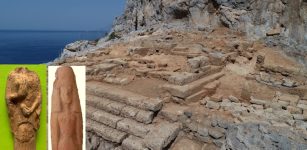 Secrets Of The Ancient Temple Of Dimitra At The Acropolis Of Falasarna Revealed By Archaeologists
Archaeology | Nov 19, 2022
Secrets Of The Ancient Temple Of Dimitra At The Acropolis Of Falasarna Revealed By Archaeologists
Archaeology | Nov 19, 2022 -
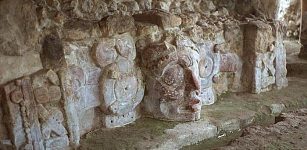 Edzna: Ancient Maya City With Sophisticated Underground System Of Canals To Control Unpredictable Floods
Featured Stories | Jun 2, 2021
Edzna: Ancient Maya City With Sophisticated Underground System Of Canals To Control Unpredictable Floods
Featured Stories | Jun 2, 2021 -
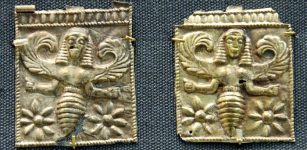 Bees – Embodiment Of Human Soul, Divine Messengers Symbolizing Invisible Bridge Connecting Life And Death
Featured Stories | Jul 26, 2023
Bees – Embodiment Of Human Soul, Divine Messengers Symbolizing Invisible Bridge Connecting Life And Death
Featured Stories | Jul 26, 2023 -
 3,500-Year-Old Tomb Of Egyptian Goldsmith Discovered
Archaeology | Sep 10, 2017
3,500-Year-Old Tomb Of Egyptian Goldsmith Discovered
Archaeology | Sep 10, 2017 -
 Neanderthals Cared For Each Other And Survived Into Old Age – Study Shows
Evolution | Nov 2, 2023
Neanderthals Cared For Each Other And Survived Into Old Age – Study Shows
Evolution | Nov 2, 2023 -
 Vikings: Facts And History About The Tough Norse Seafaring People
Ancient History Facts | Mar 13, 2017
Vikings: Facts And History About The Tough Norse Seafaring People
Ancient History Facts | Mar 13, 2017 -
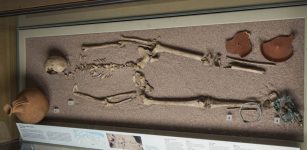 London Was Always A Multicultural City, DNA Research Confirms
Archaeology | Nov 26, 2015
London Was Always A Multicultural City, DNA Research Confirms
Archaeology | Nov 26, 2015 -
 Engraved Trees Are Living Records Capturing The Rich History And Traditions Of The Sámi People
Archaeology | Nov 21, 2024
Engraved Trees Are Living Records Capturing The Rich History And Traditions Of The Sámi People
Archaeology | Nov 21, 2024 -
 INAH Archaeologists Focus On Ancient Religious And Ceremonial Site Of Teteles Of Avila Castle, Puebla, Mexico
Archaeology | Nov 7, 2024
INAH Archaeologists Focus On Ancient Religious And Ceremonial Site Of Teteles Of Avila Castle, Puebla, Mexico
Archaeology | Nov 7, 2024 -
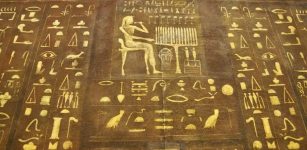 Decipher Hieroglyphs And Ancient Egyptian Images With Google’s AI Fabricius
Linguistic Discoveries | Jul 22, 2020
Decipher Hieroglyphs And Ancient Egyptian Images With Google’s AI Fabricius
Linguistic Discoveries | Jul 22, 2020

